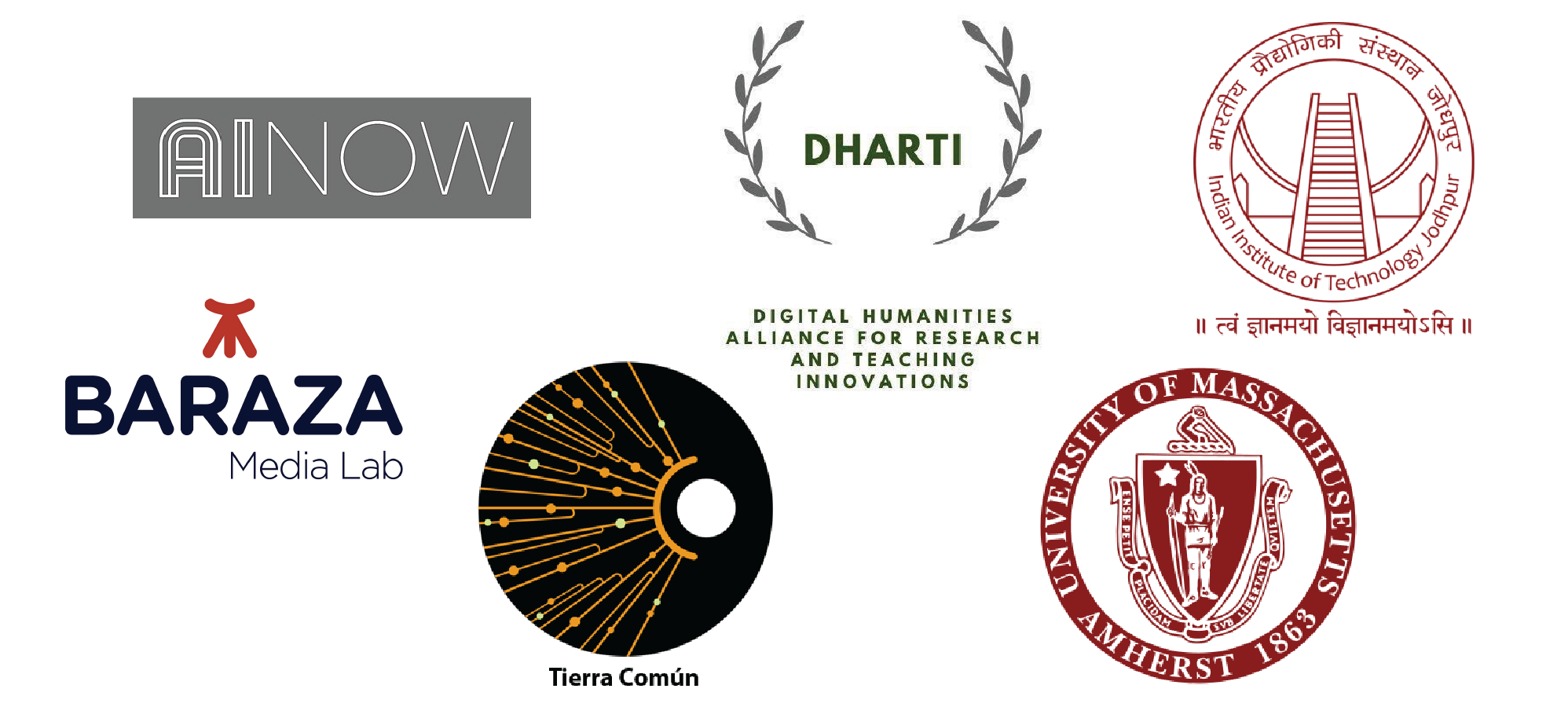This is a two day event. Unlike a conference, this event will focus on storytelling as craft and method; reading, imagining, and offering interdisciplinary feedback on in-progress stories; building collaborative networks for exploring interwoven themes; and finally, performing and listening to stories.
- On Thursday, October 21, 2021 from 9 AM ET through 1 PM ET (exact timing to be confirmed), we will host a storytelling workshop. All eligible storytellers will receive a $150 USD stipend.
- On Friday, October 22, 2021 from 9 AM ET through noon (exact timing to be confirmed), we will host an online storytelling event. This event is open to all workshop applicants who wish to attend the event.
The event is divided into two days to make it a little easier for participants from different time zones to attend all the sessions and account for video conferencing fatigue. The storytelling workshop will include a mix of deep-dive discussion on storytelling as a craft with a storytelling coach (to be confirmed), networking opportunities, and one session for workshopping a story. Each session will be 75 minutes long. While all participants will be together for one session with a storytelling coach, there will be multiple (10 to 15) story workshopping sessions that will run in parallel. Within each group, a Session Facilitator will open the discussion after a story is performed and invite listeners to share responses and suggestions. The online storytelling event will be an exercise in collective listening where we all gather together to listen to stories featured in the workshop. Participants will also have the opportunity for informal networking and thematic conversations throughout the two days of the event.
Storytellers: This is a fantastic venue for workshopping your story. If you have an appropriate in-progress story or other type of work (fieldnotes, podcast, comic book, etc.), you are strongly encouraged to submit a story summary for consideration. Stories are expected to be in an advanced draft stage with room for improvement; the goal of this event is not to present finished work but to truly workshop stories-in-progress. Storytellers are expected to submit a summary of their story (<500 words) for the initial submission. If selected, they will be expected to submit a written version (<3,000 words) and an audio recording of their story (<10 minutes). These limits are only indicative of the length of expected submission; we are open to longer stories, if the storytellers feel that their story needs more words/time. During the workshop, they will be expected to listen to, and engage with, critical discussion from the assembled group about their story, with the explicit intent of improving their performance and making their stories more compelling. A maximum of 2 co-storytellers may apply together using the same story summary.
Note: We will invite storytellers to perform their stories in the online storytelling event, in addition to receiving feedback. We currently expect each story to take less than 10 minutes in the storytelling event, however this limit will change depending on the submissions we receive. Participation in the storytelling event is not mandatory, but is encouraged.
Active Listeners: If you do not wish to submit a story-in-progress but are interested in the topic, we welcome your application as an active listener. Listeners will be able to attend the storytelling event and may be asked to review one story in advance of the event and prepare comments for intensive discussion. Some listeners who agree to review a story will also be invited to be Session Facilitators, and lead the conversation to engage the group in feedback.



